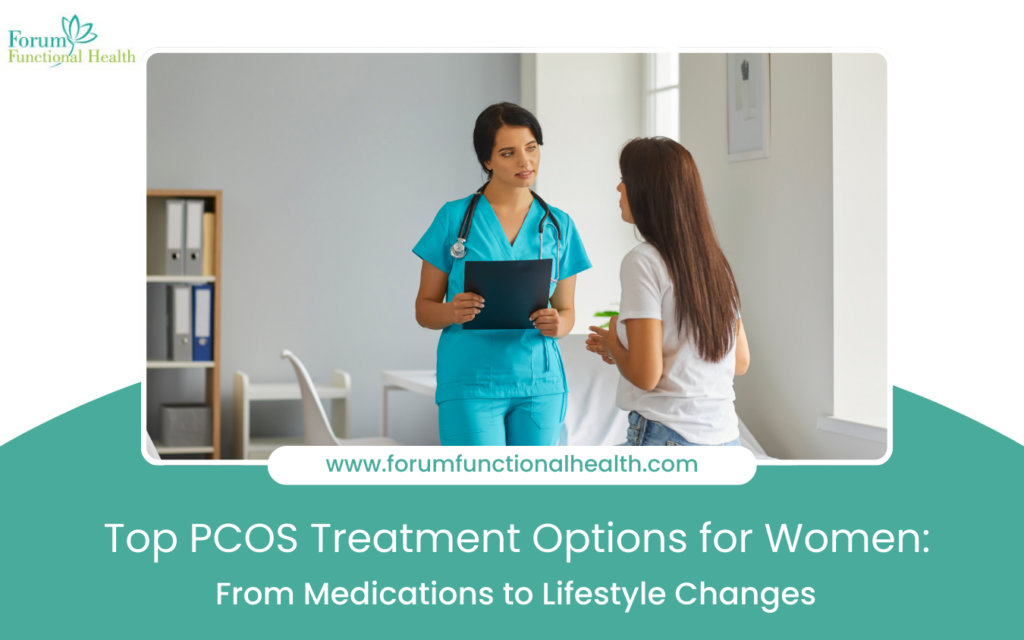Top PCOS Treatment Options for Women: From Medications to Lifestyle Changes

Polycystic Ovary Syndrome (PCOS) is a condition that affects millions of women worldwide, disrupting their physical health, mental well-being, and overall quality of life. Living with PCOS can feel overwhelming, especially when symptoms like irregular periods, weight gain, and infertility make daily life challenging. However, with the right guidance, you can manage PCOS effectively. Let’s explore the top PCOS treatment options, from medications to lifestyle changes, that can transform your health journey.
Top PCOS Treatment Options
1. Medications for PCOS
Medications are often the first line of treatment for managing PCOS symptoms.
- Hormonal Birth Control: Helps regulate periods and reduce excessive hair growth and acne.
- Metformin: Improves insulin sensitivity, aiding in weight loss and hormonal balance.
- Fertility Medications: For women trying to conceive, medications like Clomid can stimulate ovulation.
For advanced care, consider visiting a PCOS Treatment in Texas to discuss your options.
2. Lifestyle Changes
Small, consistent changes in your daily routine can significantly improve PCOS management.
- Dietary Adjustments: Focus on a low-glycemic diet rich in whole grains, lean proteins, and vegetables.
- Regular Exercise: Aim for at least 30 minutes of moderate activity, five days a week, to manage weight and improve insulin resistance.
- Stress Management: Chronic stress can worsen PCOS symptoms. Practice yoga, meditation, or mindfulness techniques to stay calm.
These lifestyle changes alleviate polycystic ovary syndrome symptoms and boost overall well-being.
3. Weight Management
Losing 5% of your body weight can significantly improve symptoms like irregular periods and insulin resistance. Weight loss can also reduce the risk of developing diabetes and improve fertility in women with polycystic ovary syndrome weight loss concerns.
4. Functional Medicine Approach
Functional medicine focuses on identifying and addressing the root causes of PCOS. A functional medicine doctor can design a personalized treatment plan by evaluating your hormonal balance, gut health, and nutritional needs.
For comprehensive care, visit a Functional Health Center in Texas here.
Recognizing the Symptoms of PCOS
PCOS symptoms can vary from woman to woman, but common signs include:
- Irregular or missed menstrual cycles
- Difficulty conceiving
- Excessive hair growth on the face or body
- Weight gain, especially around the abdomen
- Acne or oily skin
- Hair thinning or hair loss on the scalp
If these symptoms resonate with you, it’s important to act quickly. Early intervention can help prevent complications like diabetes, heart disease, and infertility.
